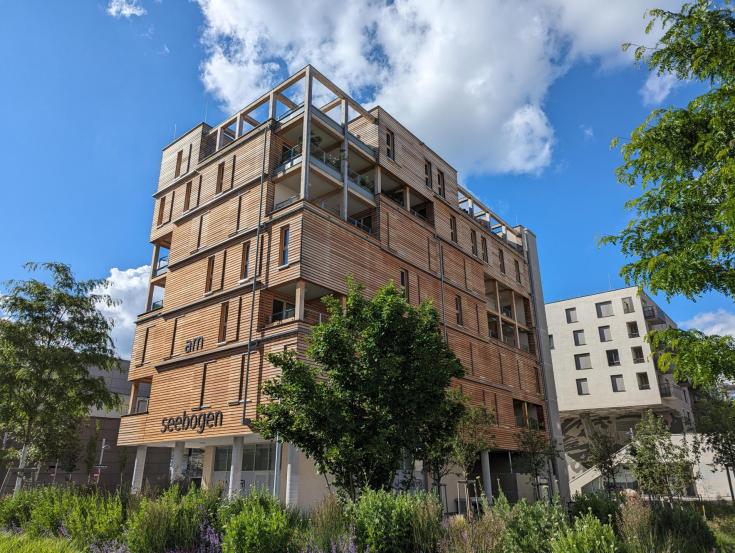Biobased building materials in the Province of Zeeland

On 29-30 May 2024, the Policy Learning Platform held an onsite peer review for the Province of Zeeland, which requested advice regarding their policy challenge on how to scale-up use of biobased building materials in the region.
Peers from across Europe
Alongside Magda Michaliková and Astrid Severin, our Thematic Experts on ‘Greener Europe’, five excellent peers participated in the peer review:
- Camilla Hayselden-Ashby, Nuffield Scholar, United Kingdom
- Dominique Girolami, Ovam, Belgium
- Ana Quintas, Circular Economy Expert, the Netherlands
- Joan Romero Clausell, Valencia Institute of Building, Spain
- Mihaela Frincu, INCDCP ICECHIM Calarasi Branch, Romania
Some Recommendations
The Province has already been very active in the field of more sustainable construction sector. Zeeland’s circular approach is embedded in its provincial policies. Their Environment Vision outlines an ambition to have a sustainable and innovative economy and a climate-proof and carbon-neutral Zeeland.
The Economic Implementation Programme 2022 – 2027 includes the transition towards renewable (bio-based) raw materials as one of its three goals. The Province has also established Knowledge and Innovation Network on Circular Construction, which connects over 70 organisations in the region. To achieve the presented policy targets, the peers recommended the following:
Communication
- Zeeland already has a lot of great examples to share, speak about them
- Co-create a vision statement that outlines your long-term goals and aspirations for the future
- Devise a communication strategy
- Create a common branding and narrative
- Work with ambassadors, organise media trips, interviews, etc.
Education
- Focus on awareness raising and education of the public and the contractors/builders
- Develop a demonstration site - education, training
- Show the work that has been done - route around the city
Policy measures
- Use public procurement (% of biobased materials, targets for reducing emissions from construction)
- Use subsidies and tax incentives
- Work on certification and labelling
Stimulating supply and demand
- In order to stimulate demand and supply, it is important to influence the entire construction value chain
- Develop of a strong business case for farmers, manufacturers, processers
- Supply of materials - analyse the seasonality and cost, map / establish regional value chains
- Use residual streams (bio-based construction materials from wheat straw, grass)
- Stimulate demand by showing long-term benefits (health) and economic benefits (lower energy consumption)
- Explore which materials can be sourced locally
All recommendations came together in a first outline for a 5-year action plan.

“I am really happy with the structured and very relevant recommendations. In the procurement department, we will in particular consider applying specific targets for biobased materials and looking into monitoring the results very closely.”
“These two days have been a turning point. We will implement everything that has been recommended to us. As a next step, we will start sharing responsibilities and see with every department what they are happy and able to take over.”

Peer review publication
Find more information on the methodology and experiences of previous beneficiaries in our publication.

Apply for a peer review
Start your peer review application process today and find solutions to your policy challenge with our expert and peers!

